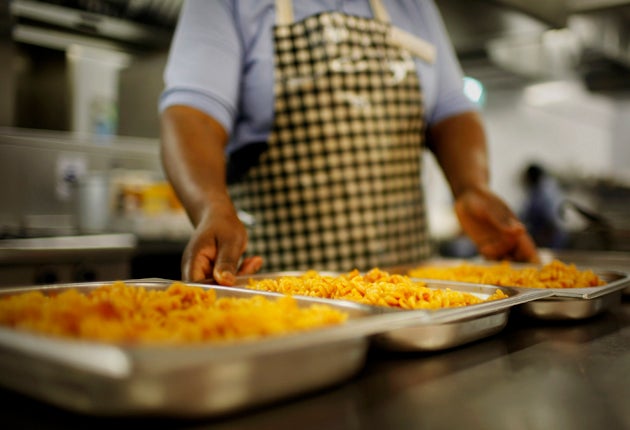Do we still need school dinners?
It wouldn't be such a bad thing if parents had to provide midday food for their children – the good old packed lunch


This week The New Local Government Network, an independent think-tank, suggested that cuts in central government grants to local authorities could, among other things, lead to the scrapping of school meals.
Although the report quotes figures such as a forthcoming £16.5 billion gulf which could open up between local government’s income and the demands on it, most of what the Network actually says is pure speculation studded with words such as ‘could’ ‘might’ and ‘possible.’
But of course anything to do with children and school meals is emotive and makes for a good attention-grabbing headline. It did however, set me thinking about school meals and free school meals and to wonder – with an open mind initially - whether or not we still need them.
First some history. The 1944 Education Act entitled every child to a free school meal. The date is significant, of course. Many children in late war and post-war Britain certainly needed some wholesome nourishment – and some councils had been providing free meals anyway since 1906. By 1949 the cost was unsustainable and a flat fee of sixpence came in with exemptions for poor families. That charge gradually increased and since 1980 local authorities have not been legally obliged to provide meals other than to poor families – although in practice most do.
So what is the situation in 2013? Well the first thing is to stop confusing school meals with free school meals, In January 2011 – the most recent available data – about 1.2 million children were entitled to free school meals. The former six eligibility criteria are gradually being subsumed into the universal tax credit (UC) so that presumably, in time, only those families in receipt of UC will be entitled to free food at school.
Not really such a bad thing. At present the entitlement details are quite complicated and it’s always good to simplify arrangements if possible. What worries me much more, and as a teacher I’ve seen many instances of it, are families in poverty who don’t apply, typically for one of three reasons: unwillingness to admit the need, ignorance of their entitlement or belief that their children wouldn’t like the food. As austerity hits more and more families teachers, social workers, health visitors et al should be maximising their efforts to reach these families and ensure that they benefit as they should.
On the other hand during a long teaching career, I’ve also seen many pupils from canny, exploitative families who know exactly how to milk the system. When I taught in north Kent we had several families, for example, whose parents were making a good living out of trading in scrap metal. It was usually undeclared income so they could also get away with claiming benefits, including free school meals. We often saw their children before or after school clutching five or ten pound notes purchasing junk food in local shops. The government is absolutely right to crack down on such people - whose children are in every school. The really important thing is to get free, healthy food to the children who really need it and too many of those may, at present, be losing out.
As for the children whose families are not entitled to free school meals would it be such a bad thing if parents had to provide midday food for them – the good old packed lunch? We hear a great deal these days about parents not owning dining tables or providing healthy, sit-down hot meals for their children at night or at weekends. Clearly that’s not good, but I’m not sure it’s the job of the education service to rectify parental shortcomings by doubling as caterers. I’d rather see the money spent on campaigns to show parents how to feed children well but simply so that it need not cost too much or take too much time. The reintroduction of cookery lessons in secondary schools would be a good start towards long term attitude change except that (almost) all the cookery teaching rooms were expensively redeployed in the 1990s.
School meals are prepared ‘on a tight budget’ - which simply means cheaply - so traditionally it has been very challenging to make them both healthy and appealing. Jamie Oliver and his colleagues seem to have seen off turkey twizzlers et al and there are now quite strict standards detailed on the Department for Education website about what may and may not be served. There must be at least one portion of fruit and one of vegetables each day, for example, and salt must not be served as a condiment. These are brave efforts but many children and parents continue to reject the results – partly because parents resent having to pay for something their children don’t really like.
I wouldn’t personally lose too much sleep over the demise of school meals as an option for everyone with two provisos.
First, we need to do everything possible to educate parents about the preparation of healthy lunch boxes and the importance of involving the child so that he or she knows what’s in the packed lunch and looks forward to eating it.
Second, we must continue to support low income families in genuine need of free school meals. It is possible that the money for this might, in time, be included in the UC, in which case the family would provide a packed lunch. If, as seems likely for the moment, we continue directly providing food for these children, even if the others have to bring their own meal, we have to find imaginative and sensible ways of making absolutely sure that these children aren’t stigmatised – difficult, but it must be done.
Join our commenting forum
Join thought-provoking conversations, follow other Independent readers and see their replies
Comments